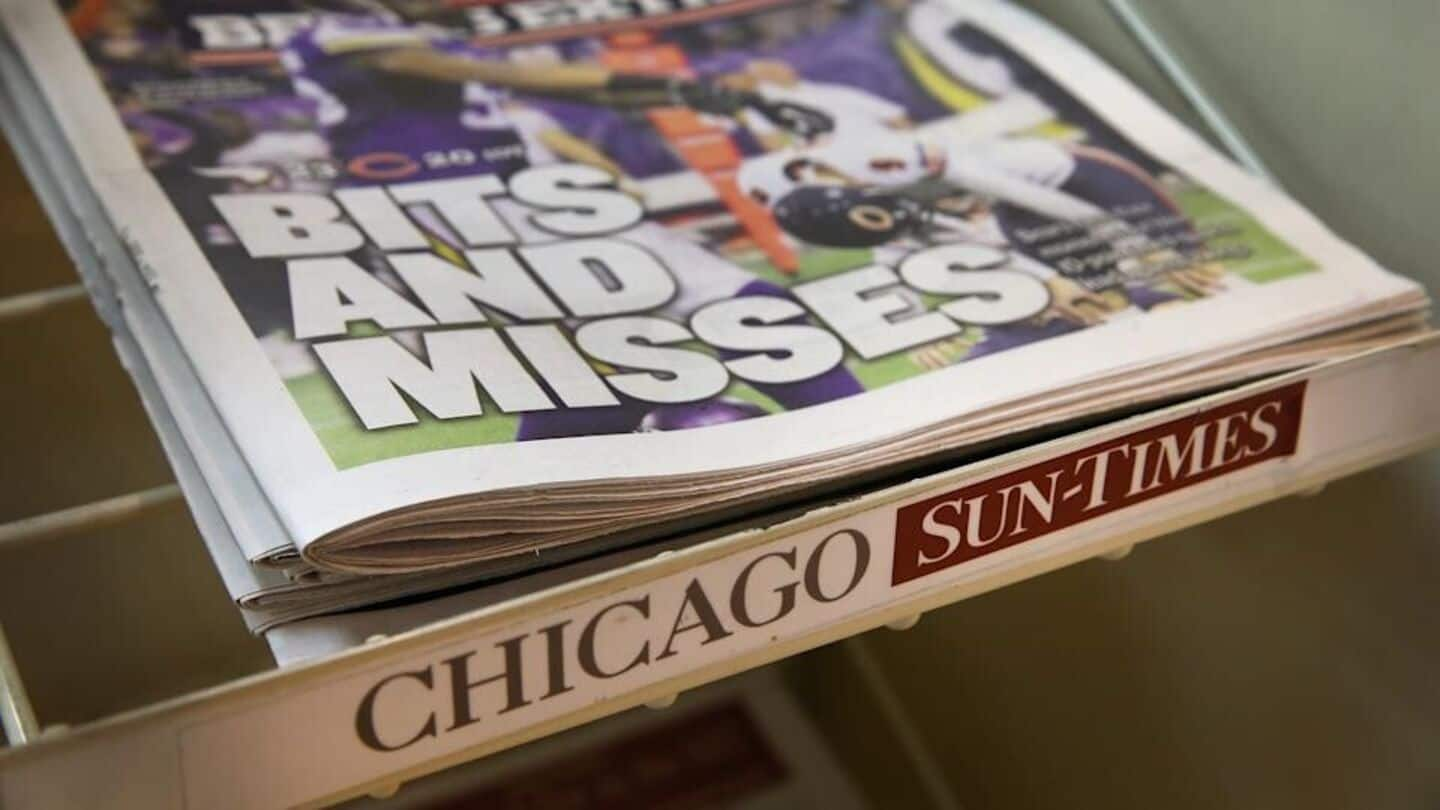
This newspaper released an AI-made reading list featuring fake books
What's the story
The Chicago Sun-Times, a prominent newspaper in Illinois, has faced backlash for releasing a summer reading list replete with made-up book titles. The list, which included AI-generated content, was submitted to the paper by freelance writer Marco Buscaglia. While many of the AI-generated titles were credited to actual authors and turned out to be non-existent works, some real titles were also included.
Controversy erupts
AI-generated content raises eyebrows on social media
The AI-generated reading list drew widespread criticism on social media, with users questioning the newspaper's decision to use an AI tool for creating book titles. Book Riot editor Kelly Jensen expressed her dismay in a Bluesky post, saying, "Why the hell are you using ChatGPT to make up book titles? You used to have a books staff. Absolutely no fact checking?" The controversy went viral.
AI in journalism
AI tool's role in generating content questioned
The summer reading list controversy has opened a broader debate on the use of AI tools in journalism. Screenshots from the Chicago Sun-Times's summer 2025 section showed that AI-generated content was not restricted to book recommendations. An article titled "Summer food trends" quoted a fake Cornell University food anthropologist named Catherine Furst, while another on home improvement quoted a fake editor from FirepitBase.com named Daniel Ray.
Response
Chicago Sun-Times addresses AI controversy
Amid the increasing backlash, the Chicago Sun-Times addressed the matter on its official Bluesky account. The newspaper said it was investigating how this content made it into print and stressed that it was not editorial content created or approved by their newsroom. Later in the day, they confirmed that AI had been used to create the list as part of a special section supplied by a nationally-recognized content partner.
Prevention
Commitment to prevent future AI-related incidents
The Chicago Sun-Times is dedicated to preventing such incidents from happening again. The special section featuring the AI-generated reading list will be deleted from the e-paper version of the newspaper. The publication also promised to revise its policies on third-party licensed editorial content, vowing more transparency around production and publication processes in the coming days.